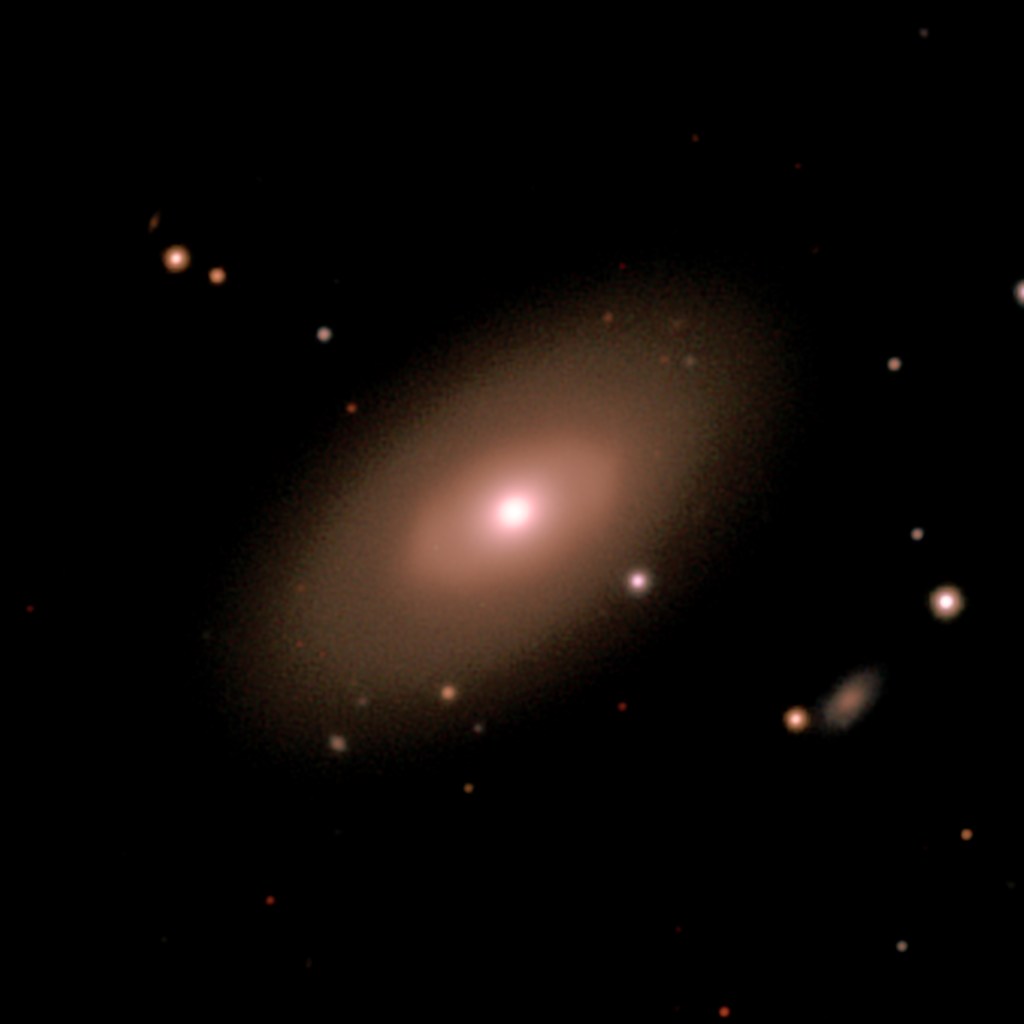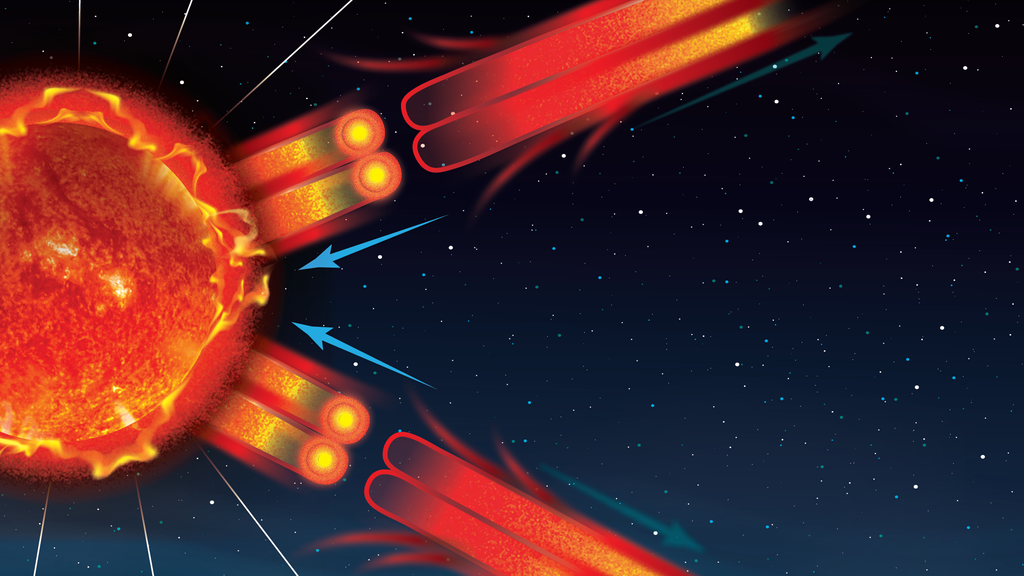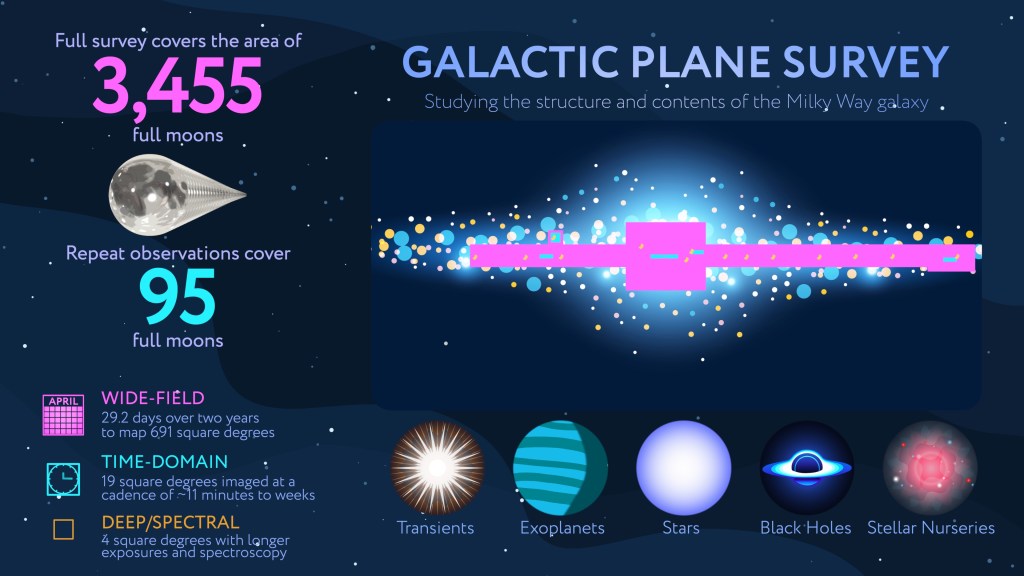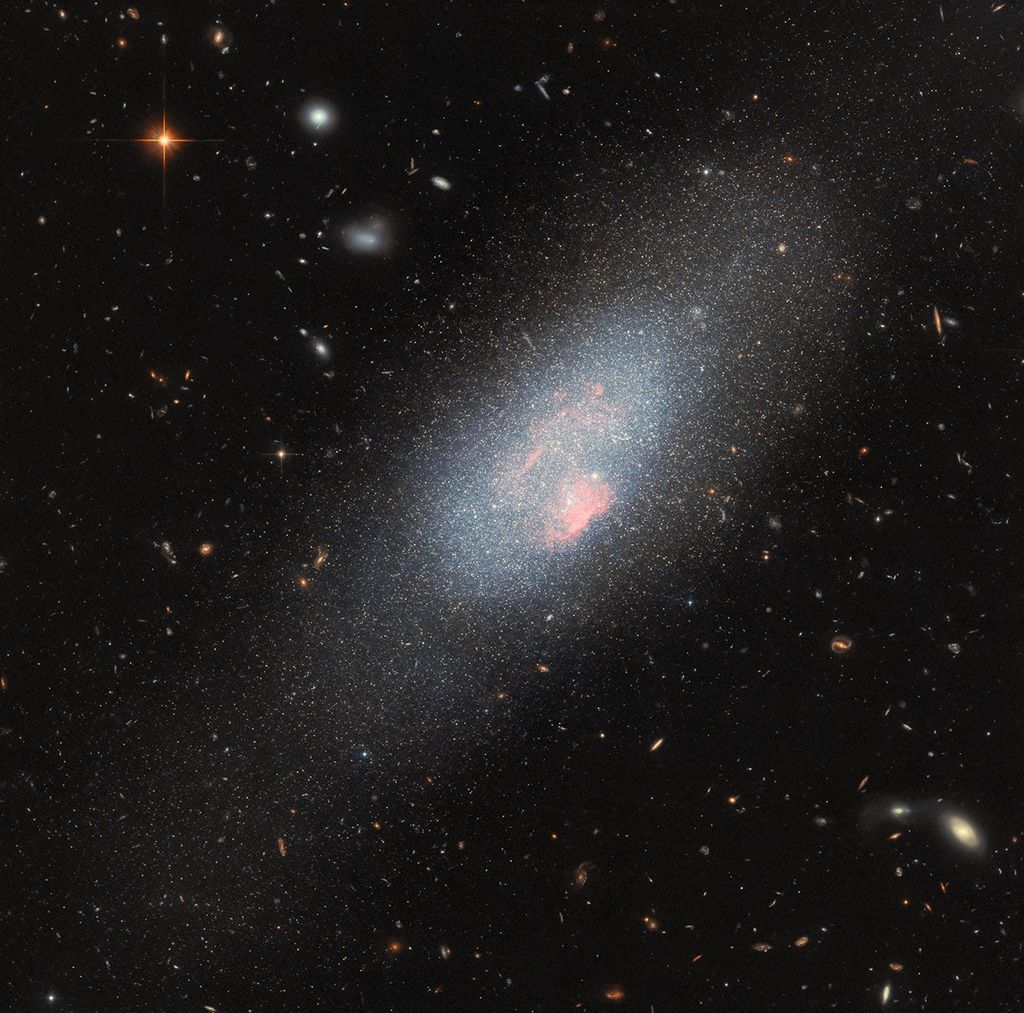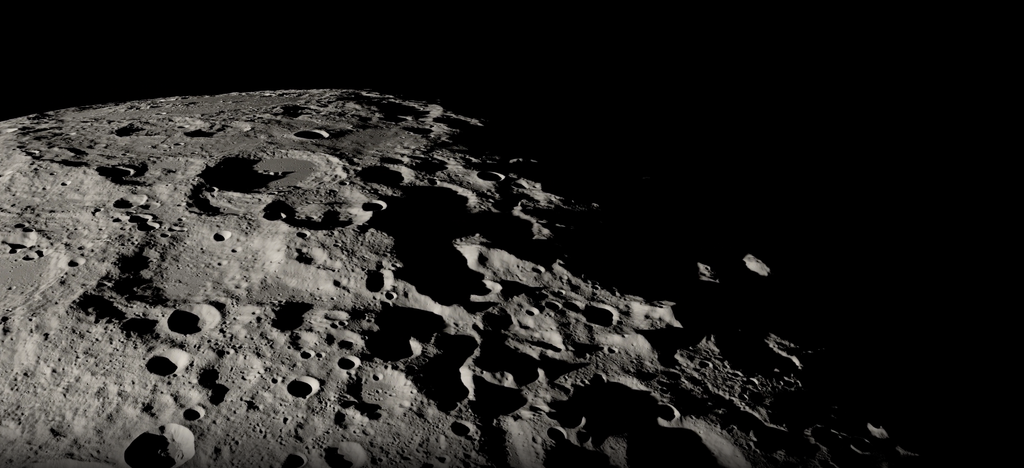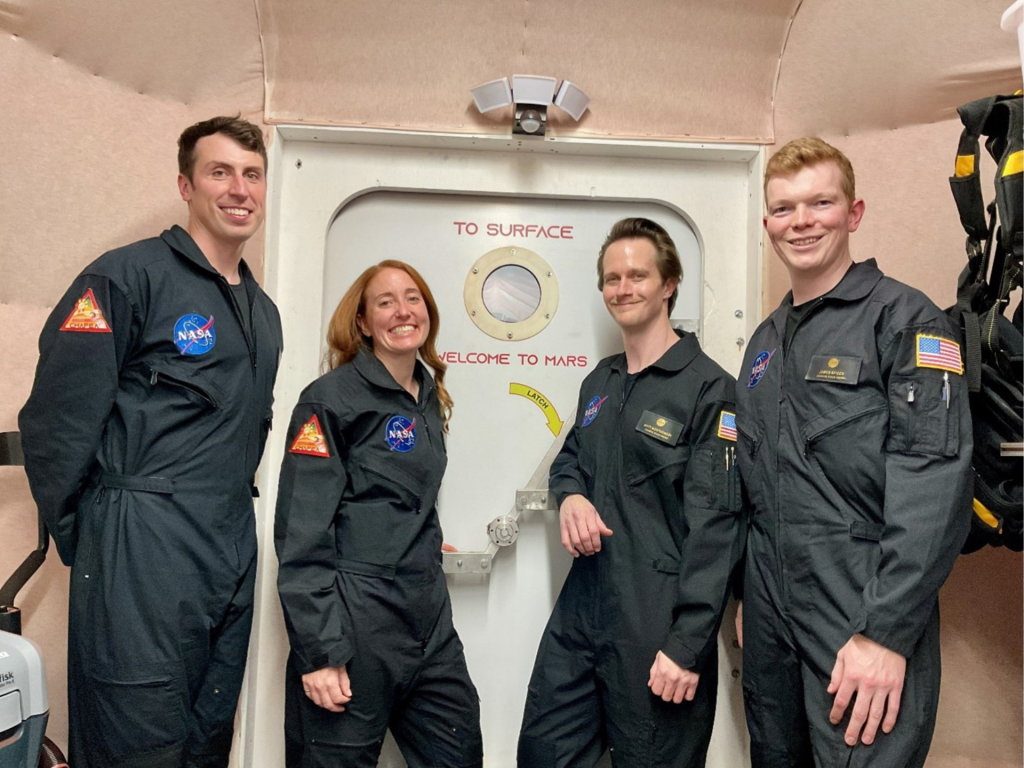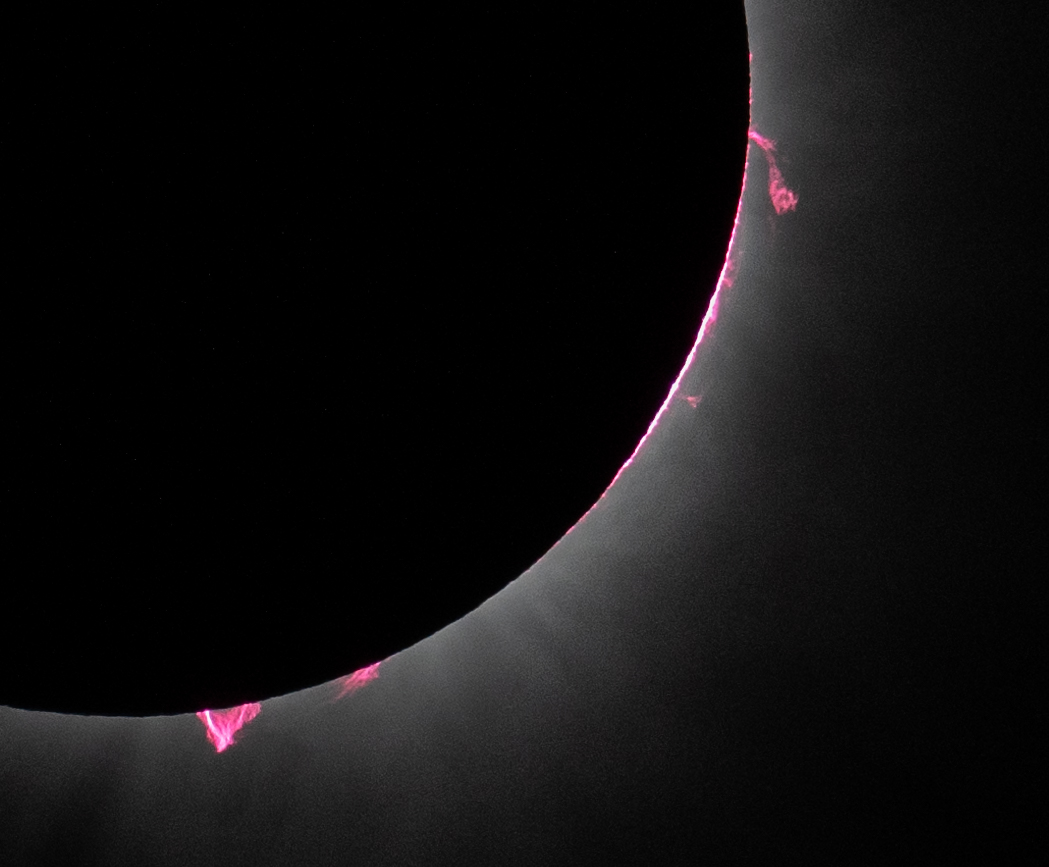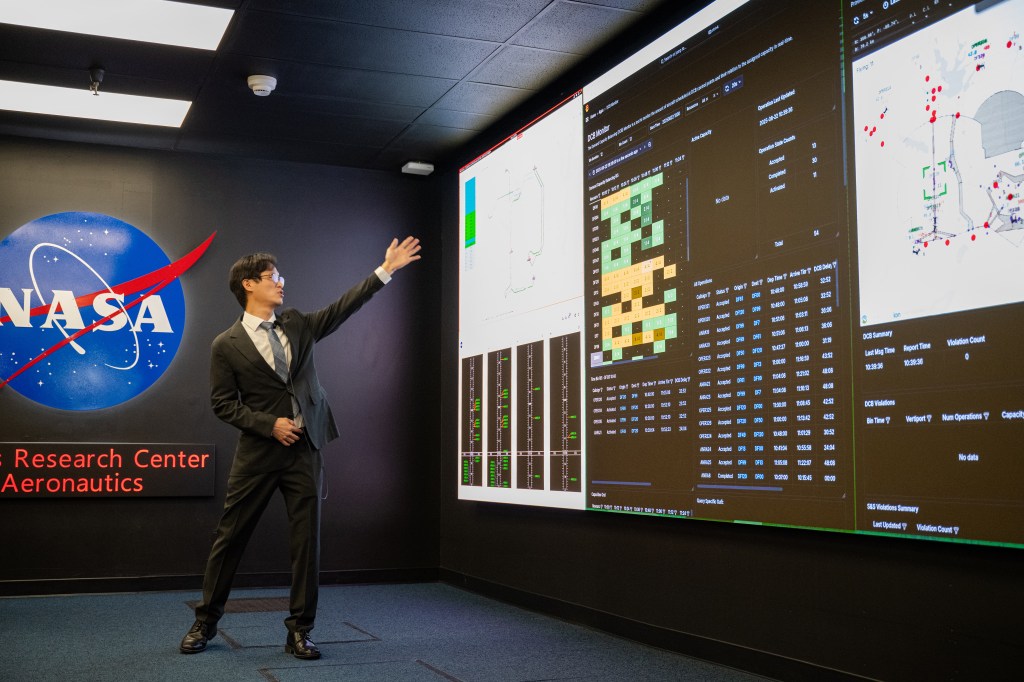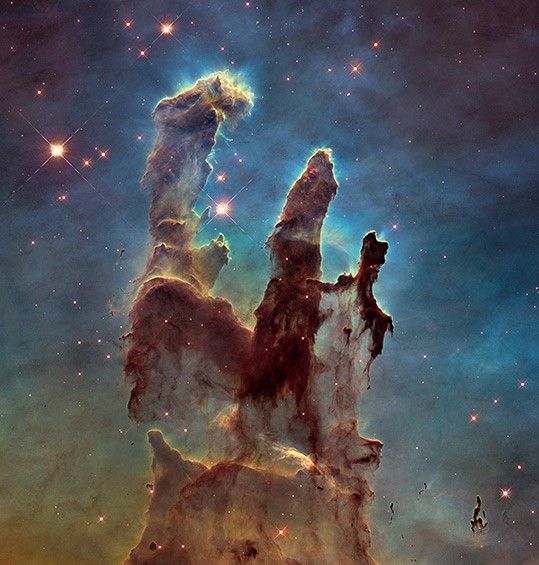1 min read
Ground-based Image of Seyfert Galaxy NGC 4395

This photograph of the nearest Seyfert galaxy, NGC 4395, was taken with the Palomar 200-inch telescope. NGC 4395 is the least luminous and nearest Seyfert galaxy known, located eight million light-years away in the direction of the constellation Canes Venatici (The Hunting Dogs).
A Seyfert galaxy is a class of nearby galaxy that has an extremely bright central region that often obscure the much dimmer stars in the surrounding disk. The nucleus gives off prodigious amounts of energy largely in the form of high-energy x-rays and gamma rays.
Spectroscopic observations made with NASA's Hubble Space Telescope (HST) further support the theory that this galaxy and other active galaxies are fueled by a massive black hole at the center.
Most astronomers believe that the only object capable of producing such tremendous amounts of energy in a relatively small galactic core is a black hole. The HST results rule out vigorous star formation as the alternative explanation for the power source at the heart of Seyferts.
HST did not detect any absorption lines that would he produced by stars in the nucleus, therefore stellar processes are not responsible for light emitted by the nucleus. HST data also show that the galaxy's center is no more than two light-years across - less than half the distance from our Sun to the nearest star.
The findings are reported in the June 20, 1993 issue of The Astrophysical Journal by Filippenko, graduate student Luis C. Ho, and California Institute of Technology astronomer Wallace L.W. Sargent.
About the Object
- R.A. PositionR.A. PositionRight ascension – analogous to longitude – is one component of an object's position.12h 25m 48.92s
- Dec. PositionDec. PositionDeclination – analogous to latitude – is one component of an object's position.33° 32' 47.79"
- Object NameObject NameA name or catalog number that astronomers use to identify an astronomical object.NGC 4395
- Release DateJuly 16, 1993
- Science ReleaseHubble Observations Support Black Hole Explanation For Active Galaxies
- CreditPhoto Credit: Allan Sandage, Carnegie Institution
Share
Details
Last Updated
Aug 17, 2025
Contact
Media
Claire Andreoli
NASA’s Goddard Space Flight Center
Greenbelt, Maryland
claire.andreoli@nasa.gov


